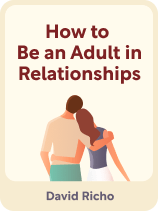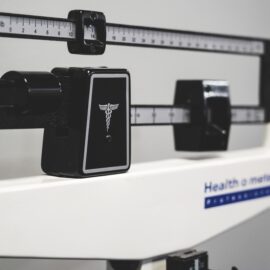

This article is an excerpt from the Shortform book guide to "How to Be an Adult in Relationships" by David Richo. Shortform has the world's best summaries and analyses of books you should be reading.
Like this article? Sign up for a free trial here.
How do our parents affect our adult relationships? How can you learn to love in an emotionally mature way?
You’ll need to do some inner work to become someone who can love mindfully—an emotionally mature person. David Richo explains how your parents’ love shaped your ability to love mindfully—and how to mature emotionally by healing any childhood wounds you may have sustained.
Keep reading if you want to know how to learn to love and not let the past affect you.
Where Your Definition of Love Comes From
To understand how to learn to love, you need to know where you got your definition of love from. According to Richo, the love you received from your parents as a child set the stage for your adult love life. If your parents always loved you mindfully, then you’re set to become an emotionally mature adult: someone who knows how to give and receive mindful love. On the other hand, if your parents ever made you feel hurt or underloved, you sustained childhood wounds that can hold you back from becoming emotionally mature.
Richo explains that these childhood wounds can interfere with your ability to love mindfully in adulthood in three ways: You accept inadequate love, you expect your partner to fill a parental role, and/or you’re afraid of intimacy.
2 Ways to Mature Emotionally
Now we’ll look at two ways to mature emotionally so you can learn to love fully.
#1. How to Heal Your Childhood Wounds and Grow Emotionally
Richo says that you can overcome your childhood wounds and reach emotional maturity by learning to mindfully love yourself. Loving yourself leads to maturity because it gives you a strong sense of self-worth and a sense of responsibility for meeting your own needs.
(Shortform note: This process—giving yourself the love your parents couldn’t—is commonly known as reparenting yourself. Reparenting yourself involves, essentially, treating yourself like a parent should treat their child: keeping them safe, loved, and equipped with the skills and support they need to thrive. As you take care of this “inner child,” you’ll heal her wounds—and will stop repeating unhealthy patterns and behaviors that stemmed from an impulse to soothe your inner child’s pain. Instead, you’ll start to make rational, adult decisions that are good for you.)
Richo suggests three key self-love practices that can help you mature: recognizing your inherent lovability, setting healthy boundaries with others, and compassionately validating yourself.
#2. Choose the Right Partner
According to Richo, once you’ve emotionally matured and learned to love yourself, you’ll be ready for a healthy relationship. You’ll only want what’s good for you—so you’ll take time to consider whether a new relationship would be healthy before you commit to it. As a result, you’ll have stronger relationships from the get-go.
To take an emotionally mature approach to figuring out whether a potential partner is right for you, Richo recommends you take into account three factors:
1) Compatibility: Determine whether you and your love interest have compatible values and life goals.
(Shortform note: In most long-term relationships, compatibility shifts over time for two reasons: First, you’re both putting your best foot forward in the early stages, so you might not notice some incompatibilities right away. Second, people change—and so do their values and goals. According to some experts, relationships thrive when couples stay committed to loving each other despite changes in compatibility—so a compatible level of commitment may be the most important thing to be on the lookout for.)
2) Availability: Determine whether you and your love interest have the capacity for trust, intimacy, and commitment and whether you’re located near enough to each other to sustain a relationship in person.
(Shortform note: In long-distance relationships, it can be hard to maintain trust, communication, and intimacy; but that doesn’t mean long-distance relationships are destined to fail. Usually, it just takes some extra work to ensure both partners feel securely connected to each other.)
3) Maturity: Determine whether you and your love interest are emotionally mature or willing to work on maturing together—if either of you is in the throes of addiction, mentally ill, violent, or desperate for a relationship to complete you, Richo says you should prioritize resolving those issues before you start dating.
(Shortform note: You may feel like you need to have all your issues figured out before you can have a healthy relationship, but that’s not the case. According to researchers, most people develop the relationship skills they need during the course of their relationships by practicing with their partners and giving each other room to grow.)

———End of Preview———
Like what you just read? Read the rest of the world's best book summary and analysis of David Richo's "How to Be an Adult in Relationships" at Shortform.
Here's what you'll find in our full How to Be an Adult in Relationships summary:
- The secret to a long-lasting, loving relationship
- How to overcome emotional wounds that hold you back from loving
- How the Buddhist concept of mindful loving can create a better world






